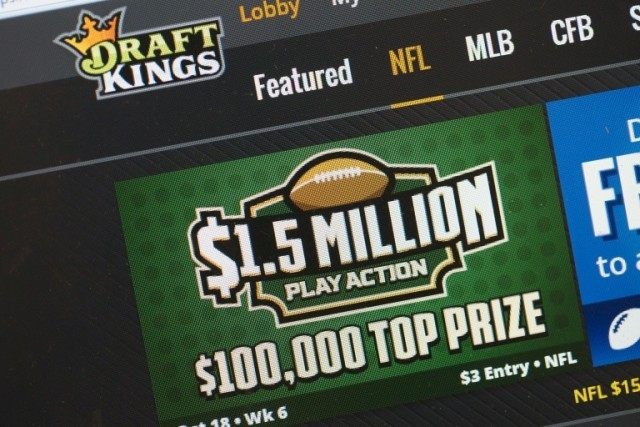Popular Reads
Top Results
Can't find what you're looking for?
View all search resultsPopular Reads
Top Results
Can't find what you're looking for?
View all search resultsStates can legalize sports gambling: US Supreme Court
States in the US are now free to legalize gambling on individual sporting events.
Change text size
Gift Premium Articles
to Anyone
T
he US Supreme Court freed states to legalize gambling on individual sporting events, unleashing what will be a race to attract billions of dollars in wagers and heralding a new era for the nation’s sports leagues.
The justices on Monday struck down the federal law that had barred single-game gambling in most of the country, saying it unconstitutionally forced states to maintain their prohibitions. Nevada has been the only state with legal single-game wagering.
Sports gambling could begin in a matter of weeks in casinos and racetracks in New Jersey, which instigated the legal fight by repealing its gambling ban. Mississippi, Pennsylvania, New York, Delaware and West Virginia could follow soon, and the number of states might reach double digits by the end of the year.
Shares of casino operators and their suppliers jumped on the news. Scientific Games Corp., a slot machine maker that also processes bets for sports book operators, rose 9.8 percent, while Caesars Entertainment Corp., the largest US casino operator, rose 6.3 percent.
MGM Resorts International, the largest owner of casinos on the Las Vegas Strip, rose 6.3 percent. The company gave a presentation to investors last week in which it sketched out a future of more professional sports teams in Las Vegas and a greater presence nationally in sports betting, either online or in casinos.
“We believe in the next two years to three years, there are 10 to 12 states that are ripe and ready to activate on that,” MGM President William Hornbuckle said. “We will be there. We will participate in it. We bring technology. We bring knowledge. And frankly in this space, we bring trust.”
Some of the biggest gains were seen by non-US betting parlor and online operators that have already been taking wagers on sports in other countries. William Hill Plc, one of the UK’s largest betting-shop operators, rose 5.6 percent. William Hill operates the largest number of sports books in Nevada. Stars Group, a Canadian company that operates the PokerStars brand, saw a 12 percent gain.
Americans place US$150 billion a year in illegal sports bets, according to the casino-backed American Gaming Association. The research firm Eilers & Krejcik Gaming puts the number at $50 billion to $60 billion, not counting bets among friends.
Sports leagues fought New Jersey in court even while moving toward embracing legalized wagering. In January, a National Basketball Association executive told New York lawmakers the leagues should get 1 percent of all bets. The NBA says it would prefer a new federal law to set nationwide standards.
New Jersey had been trying to legalize sports gambling in its casinos for years, starting with a 2012 law that explicitly authorized wagering. Federal courts struck down that measure as violating the 1992 Professional and Amateur Sport Protection Act, or PASPA. That law says states other than Nevada may not "sponsor, operate, advertise, promote, license or authorize by law or compact" a sports-gambling system.
New Jersey then took a less direct approach by exempting racetracks and Atlantic City casinos from its gambling prohibition but not explicitly authorizing wagering or setting up a new regulatory system. A Philadelphia-based federal appeals court voted 10-2 to throw out that law as well.
The Supreme Court vote was 6-3 to strike down the entire federal prohibition. The majority said PASPA violated the Constitution’s 10th Amendment by "commandeering" the states’ regulatory power.
"The provision unequivocally dictates what a state legislature may and may not do," Justice Samuel Alito wrote for the court.
Justices Ruth Bader Ginsburg and Sonia Sotomayor dissented. Justice Stephen Breyer issued a partial dissent, saying he would have effectively left the ban on sports gambling intact by upholding some parts of the statute.
Former New Jersey Governor Chris Christie, who led the legal fight to legalize gambling, tweeted that "New Jersey citizens wanted sports gambling and the federal Gov’t had no right to tell them no."
The New Jersey law was challenged by the National Collegiate Athletic Association, the National Football League, the National Basketball Association, the National Hockey League and Major League Baseball.
The lead case is Murphy v. NCAA, 16-476.










